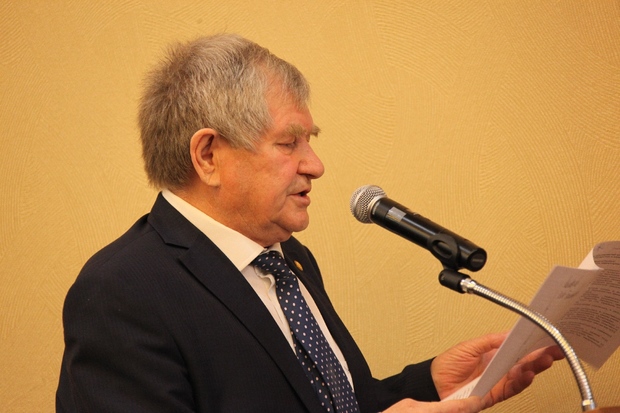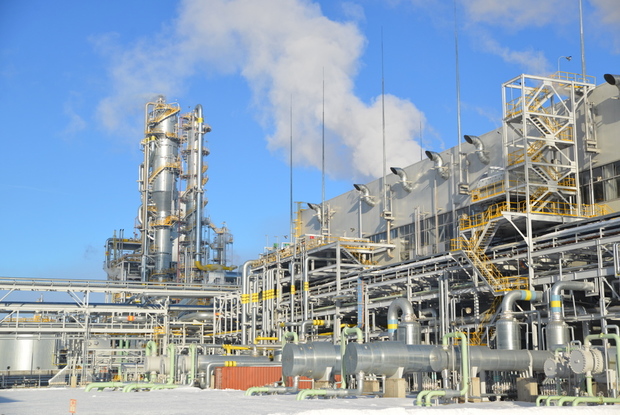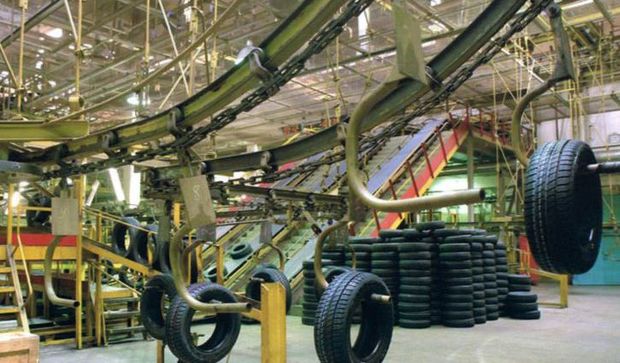Tire anomaly: Maganov explains why Tatneft exited from the plants of domestic automotive industry
ВАSF falls by 25%, Nizhnekamskneftekhim increases by 3%
The petrochemical complex of Tatarstan, willy-nilly oscillating 'on the swings' of world prices, continues to hold acceptable growth rates, surpassing Russian dynamics. Kazanorgsintez PJSC and Nefis Cosmetics PJSC with a total growth rate of 3.6% have become the leaders. Ammonia, which has become a victim of a decline in world prices for carbamide, and Nizhnekamsktekhuglerod turned out to be outsiders. Chemical Plant named after L. Ya. Karpov in Mendeleyevsk showed a drop by 17%.
The working results of the petrochemical complex of Tatarstan, as a rule, are summarized up in comparison with national figures. This time, Director General of Tatneftekhiminvest-Holding Rafinat Yarullin followed the tried and tested technique, emphasizing a difference between Tatarstan and Russian results. As followed from the presentation, the index of the Russian complex is 100,4% in the first 9 months of this year compared to last year, while a growth of oil production in the Republic increased by 4%, of chemical production — by 2,7%, of plastics production — 5,6% (all figures are for 9 months of 2015). So, the regional growth index amounted to 3,6%.
Oil refining — beyond Russian growth
The only thing that turned out to be below Russian level is the production of petroleum products that decreased by 5,7%. As Rafinat Yarullin explained later, the revenues in oil refining decreased as a result of falling domestic and world prices. But major refiners TANECO and TAIF-NK have increased production of the most commonly used diesel fuel and naphtha and reduced the production of oil, gas and automotive gasoline, kerosene.

'Rafinat, I'm glad that you've started with countries of the world, not with Trump and Clinton,' joked the president of Tatarstan. Nevertheless, the head of Tatneftekhiminvest-Holding could not ignore a situation in the world. 'On the main markets of chemistry and oil refining there is a decrease in prices,' said Rafinat Yarullin. 'As a result, the revenues from sales of most multinational corporations have decreased.' On the chart they could see that a global player on the petrochemical market German company BASF had serious losses, its revenues fell by 25%, the Korean DOW — by 6%, German Dupont — by 2%.
Ammonia has shown a zero return
Tatarstan companies have managed to retain in a positive zone on the swings of world prices. As Rafinat Yarullin reported, the petrochemical complex has sold products at 834 billion rubles, and the revenue of the key enterprises of petrochemical industry of the Republic have exceeded 691 billion rubles with a 2% growth (not taking into account Nizhnekamskneftekhim and TAIF-NK). The highest growth rates are at Kazanorgsintez, Nefis, KVART and of the residents of technopolis Khimgrad. 'Nizhnekamskneftekhim's revenue has increased by 3%, and the profit from sales remained at the level of last year, Kazanorgsintez's production has grown by 2,4% due to an increase of plastics production,' he said. In the zone of falling profitability due to the decline in world prices there is Ammonia JSC, which in the first year on the market faced almost twofold fall. A chart indicated that the profitability of sales of the company for that reason was 0,02%! Another victim of changing market prices for carbon black has become Nizhnekamsktekhuglerod JSC — its revenue has fallen by 19%.
In general, expenses for production and sales of petrochemical products of Tatarstan enterprises have increased by 5% to 531,5 billion rubles, and the profit from sales has amounted to 145 billion rubles.

Nizhnekamskshina has exited from the automative factories
The tire manufacturers surprised the president. On the one hand, the production of cargo (+23%), light-truck (+36%) and bus (+53) tires have increased, but, on the other hand, the production of car tires has decreased (-11%). Rafinat Yarullin explained a shrink of the car tire manufacturers so: this corresponds to the dynamics of production of passenger cars. 'Mr Maganov, what prospects do we have of tires by the end of the year?' asked Rustam Minnikhanov. 'Somehow they [the figures – editor's note] are going down, but, in fact, they are going up,' Director General of Tatneft Nail Maganov (Nizhnekamskshina JSC is belonging to Tatneft) tried to improve the picture. And then he said almost sensational news. It turned out that Nizhnekamskshina has ceased to supply passenger car tires for configuration to the Russian automakers, who have recently occupied 20% of the total production of tire manufacturers. 'As for passenger car tires, they stopped to supply for configuration,' he said. 'But from the point of view of money, it has given only increase,' he assured the president, adding that the tires are on the secondary market.

Tatneft is puzzled by foreign oil search
In the struggle for world oil and gas, Professor at the Institute of oil and gas problems of the RAS Sumbat Zakirov called Tatneft to enter the foreign fields more actively. 'Today, nine Russian vertically integrated companies are engaged in the development in 30 countries around the world, except for Tatneft. In 2015, they managed to produce 22 million tonnes of oil, 11 million tonnes of which are of Lukoil,' he said at a meeting of the Board of Directors of Tatneftehiminvestholding. In response, President of Tatarstan Rustam Minnikhanov gave an assignment to create a working group, but said: 'When we [Tatneft] go to some country, there is a war. When we went to Iraq — a war, to Libya, Syria — war. We are tired — we don't want wars anymore!'